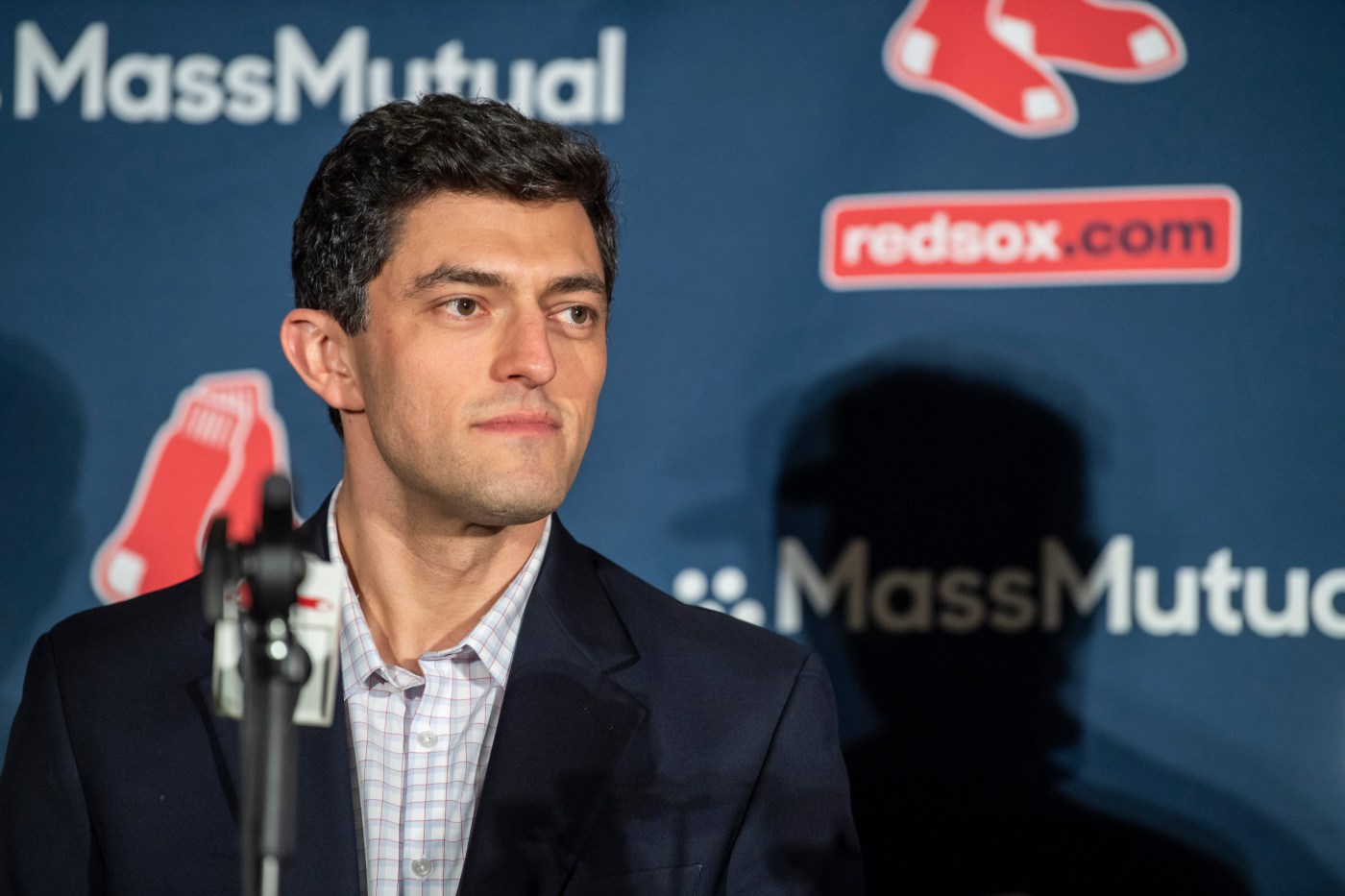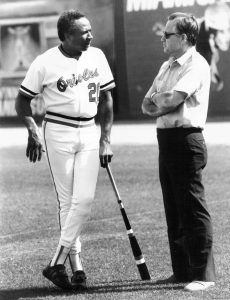
Chaim Bloom’s tenure full of cautionary tales for Craig Breslow
“I know what it takes to win here and I’m willing to make the hard decisions necessary to deliver,” Craig Breslow stated towards the end of his introduction.
When getting reacquainted with the Boston media on Thursday, the new Red Sox chief baseball officer mentioned “quality and consistency” and discussed decision-making several times.
“Red Sox fans deserve a standard of quality and consistency,” Breslow said in his opening remarks. “Quality, meaning a team that can win the American League East and contend for a World Series title, and consistency meaning we can do this year, after year, after year.”
The most consistent thing about the Red Sox this century is their inconsistency. They went from worst-to-first in 2013 and 2021, and have finished last in three of the past four seasons.
“Part of building a consistent winner at the major league level is making really bold, difficult decisions,” he later said, in answer to a question about trading his children’s favorite Chicago Cubs players. “Some of those include favorite players and some of those include leveraging prospect capital.”
These topics conjured up memories of his predecessor. The Boston chapter of Chaim Bloom’s career is one of two extremes: the stars he was willing to give up and the several times he refused to give anything up.
Three of his four payrolls were under the luxury tax threshold, yet several times, the Red Sox chose not to or failed to out-bid the competition. He rebuilt a depleted farm system, but rather than making truly productive trades, held fast to prospects and the growth he’d fostered.
However, Bloom’s tenure seemed doomed from the start due to an impossible decision, and in hindsight, it was. He was ordered to slash the payroll, which he did by trading Mookie Betts and David Price to the Los Angeles Dodgers for Alex Verdugo and then-prospects Jeter Downs and Connor Wong. Some reports said he was explicitly directed to trade Mookie Betts, others claimed the specific cost-cutting route was up to him. Either way, Bloom lost, and the Red Sox have been losing since.
Bloom also decided to sign Trevor Story to one of the largest free-agent contracts in franchise history before even discussing a potential extension with Xander Bogaerts, the consistently healthy and productive homegrown star and team leader who’d helped the Red Sox to two championship teams and several postseason runs before turning 30. He let Bogaerts leave in free agency, with Boston’s final offer tens of millions below at least four other teams. A month later, Story needed elbow surgery, which sidelined him until August. Bogaerts, meanwhile, is a Silver Slugger finalist once again.
Nathan Eovaldi wanted to stay in Boston, too. According to MassLive’s Chris Cotillo, in early December the Red Sox made him a significantly better offer than the two years and $34 million he accepted from the Texas Rangers. But when Eovaldi didn’t accept immediately, the Red Sox began signing free agents. By the end of the month, he was ready to sign, but by then, they’d spent tens of millions on Chris Martin, Kenley Jansen, Justin Turner, and Masataka Yoshida – none of whom are starting pitchers – and were no longer willing to give Eovaldi what they’d offered. This week, he started and won the deciding game of the Rangers’ first-ever World Series championship.
Quite a trio of cautionary tales for Breslow.
Likewise for the times Bloom let opportunities pass by, either because he asked for too much or offered too little. When the New York Mets were interested in J.D. Martinez before the 2022 trade deadline, Bloom’s desired return for the struggling, short-term rental was a big-leaguer, a top-five prospect, and either an additional player or cash. The Mets pivoted.
The Dodgers were also interested, but when the Red Sox wanted another pitcher at the last minute, that deal fell through as well. Failing to unload Martinez and other high-priced players ensured that the Red Sox would finish the season over the luxury tax, paying a penalty while finishing last.
Each year, Bloom added veteran starting pitchers on short-term deals. Most hurt more than they helped. But last winter, the Red Sox and Rays made Zach Eflin identical offers, and he chose to pitch for Tampa Bay. He posted a career-best 3.50 ERA across a career-high 31 starts, both of which would’ve led the Red Sox pitching staff by a wide margin. At three years, $40 million, it’s the richest free-agent contract in Rays history. The Red Sox could’ve upped their bid considerably and still remained comfortably under the luxury tax threshold.
At this year’s trade deadline, the Red Sox were silent as the grave, ignoring players’ pleas for reinforcements. Five weeks later, Bloom’s office was empty, save for a legacy of asking for too much, and offering too little.
If the Red Sox are serious about contending again, Breslow will need to zig where Bloom zagged. He’ll have to be willing to part with top prospects, as Dave Dombrowski was in the Chris Sale trade, and be aggressive in bringing free agents to Boston.
No broken eggs, no omelet.


